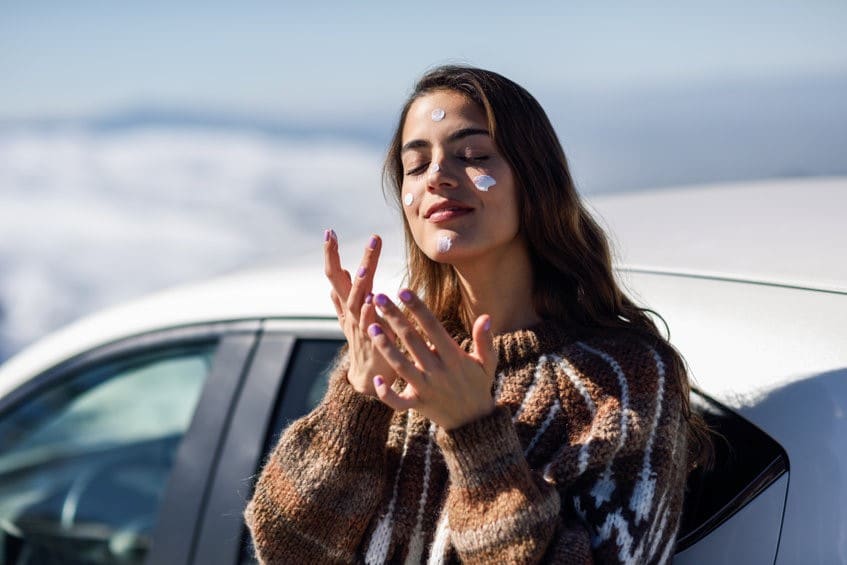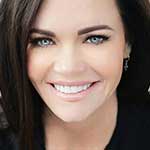
Did You Know 90% of Skin Care Ingredients Have Unknown Safety?
According to the Environmental Working Group (EWG), 90% of cosmetics and skin care ingredients have not been evaluated for safely by the FDA or any other institution.
The average person lathers, rubs and/or sprays 10 different skin care products on his or her body every day (treehugger.com). Our skin absorbs what we put on it, upwards of 130 different chemicals each day. And this does not include the chemicals we eat, drink, breathe or cleanse with!
Cosmetics companies and the FDA maintain that these chemicals are safe, and many of them are when used in small doses. However, it does not account for the small, multiple daily exposure to these chemicals that all add up each month and year to create all kinds of health problems.
Since 2009, The European Union (EU) has banned 1,328 chemicals from use in cosmetics. As of 2018, the United States had only banned 30. This is a huge contrast and needs to be considered when buying cosmetics, personal care items and sunscreen. ESPECIALLY SUNSCREEN!
An article written by the Environmental Working Group (EWG) stated: “The Food and Drug Administration has not reviewed evidence of potential hazards of sunscreen filters – instead it grandfathered in ingredients used in the late 1970s when it began to consider sunscreen safety. The Danish EPA recently reviewed the safety of active ingredients in sunscreen and concluded that most ingredients lacked information to ensure their safety (Danish EPA 2015). Sixteen of the 19 ingredients studied had no information about their potential to cause cancer” and, “Laboratory studies indicate that some chemical UV filters may mimic hormones, and physicians report sunscreen-related skin allergies, which raises important questions about unintended human health consequences from frequent sunscreen application.”
I want to focus on the topic of Sunscreen and the push to never leave home without it.
There are two types of sunscreens – physical and chemical – let’s talk about the differences.
Physical Sunscreens
Physical sunscreens block the sun’s rays and contain zinc oxide or titanium oxide. On the positive side, physical sunscreens provide a physical barrier for the skin, outperform chemical blocks, last longer on the skin and are considered less toxic. On the negative side, they can be pore-clogging, feel thick, and look white on the skin.
Chemical Sunscreens
Chemical sunscreens absorb the sun’s rays. A few of the popular chemical sunblock agents include Paba, Avobenzone, and/or Oxybenzone to name a few. Chemical sunscreens can be lightweight and less “greasy” than other traditional zinc blocks. On the negative side, chemical sunscreens are less effective than physical blocks, protect skin a shorter amount of time, have many safety concerns, contain a lot of skin-irritating chemicals are pore-clogging, acne-causing (regardless of what the bottle says) and potentially contain toxic ingredients.
Toxic Sunscreen Ingredients
The trouble with ingredients in sunscreens is they can act as penetration enhancers that are absorbed into the body and can be found in blood, breast milk and urine samples. Skin is not an impenetrable barrier. It absorbs what we put on it. This is very scary.
A study published in the American Journal of Public Health looked into the skin’s absorption rates of chemicals found in drinking water. It showed that the skin absorbed an average of 64% of the chemicals. Other studies found specific areas of the body like the face, underarms and genitalia even more permeable -up to 100 percent absorbtion rate. The majority of mainstream skincare products contain a cocktail of carcinogenic chemicals, allergens, and irritants.
The Case Against Daily Sunscreen (if you’re inside most of the day)
I am probably going to be persecuted for saying this, but if you predominantly work indoors, routine daily sunblock isn’t necessary. That’s right, I said it. If you are going to be outside for an extended period of time hiking, biking, yard work, pool time or playing at the beach, then YES, WEAR THE SUNBLOCK! If you sit behind a computer all day in an office, you can safely skip the sunscreen. Did you know that 42% of Americans are Vitamin D deficient (deficient does not include how many people are low in Vitamin D are the number would be much higher)? We need daily exposure to sunlight to help product Vitamin D to stay healthy. If you’ll be outside briefly (walking to the car, getting gas, etc.), just pop a hat on to protect the delicate skin on your face and neck.
NOTE: Keep in mind, there is no SPF past 50. Anything claiming to be greater than 50 SPF is creative marketing. If you spend any extended length of time outside in direct sunlight there is no sunblock out there that will protect you 100%. You will need a wide brimmed hat (a baseball hat isn’t enough), and appropriate coverage with clothing for maximum protection.
While I would love to carry a professional cosmeceutical organic skincare line approved by the EWG, it just does not exist. What you see in the spas are great quality, but they are not going to get the job done when your skin has some tough problems to address. These organic or “natural” skin care products are not backed by years of clinical studies and trials. I won’t deny they might be great to wash your face or moisturize your skin with, but they cannot lighten brown spots, reduce wrinkles or increase skin firmness. While Celebrity Skincare does not claim to sell products that are 100% organic or “100% safe”, we do offer a cosmetic line that is proven to be clinically effective and is as clean as possible.
Many of you may already be familiar with it – Rhonda Allison. Why I chose it and love it so much is, for starters, good skin care ingredients.
Rhonda Allison
Rhonda Allison’s promise is “to bring each and every client’s skin to its optimum potential for health and beauty and provide continued support, service, and information. Forerunners in science-based skin care, Rhonda Allison products are a natural selection!”
Among many other reasons, here are a few that keep me loving Rhonda Allison:
- Rhonda Allison does not use any dyes, artificial coloring or artificial fragrances
- RA uses natural, pronounceable skin care ingredients
- RA only uses essential oils and scents from plant extracts for aroma
- All preservatives are essential oils, plant-derived or safe FDA- approved ingredients
- Only the purest, highest-grade and naturally scientific ingredients to provide maximum results are used
- RA lists every ingredient on the bottle for your review
(this is less common than you probably think!) - All of RA’s tubes, cleanser/lotion bottles and plastic/glass jars are 100% recyclable
- RA products are a professional cosmeceutical line meaning these products offer a bridge between prescription-based products and over-the-counter cosmetics and are backed by medically accepted science that proves their efficacy. AKA, they work!
- They are reasonable in price
If you have not yet used Ra’s product line, come in and give it a try. Rhonda Allison’s affordable and safe skin care products!


